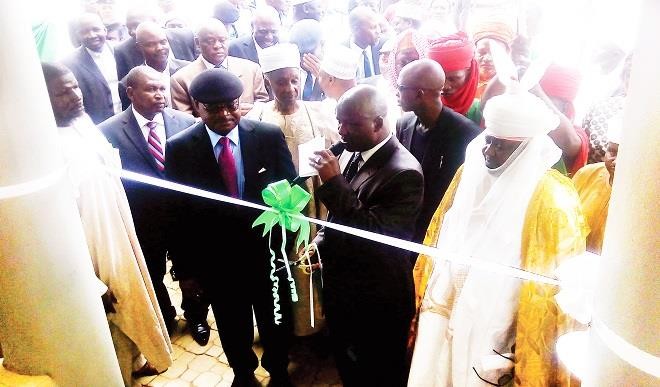
To redress alleged human rights violations, more citizens of the ECOWAS member-states now patronise the ECOWAS Community Court of Justice, Vice President of the court, Mr Micah Wright says.
Speaking in Abuja at a 2016/2017 pre-legal year briefing, he said that the court was providing refuge for victims of human rights violations.
“Through its bold judicial pronouncements, a fall out of independence and assertiveness, the court has established an admirable culture of providing refuge for the victims of human rights violations, while holding member-states accountable for their treaty obligations of human rights violations,” he said.
Wright said that the work of the court was boosted by the willingness of member-states to enforce its decisions.
According to him, under Article 24 of the court’s amended protocol, member-states were required to designate appropriate national authorities for processing and execution of the decision of the court.
In this regard, he said that four member-states, namely, Nigeria, Guinea Bissau, Mali and Burkina Faso had complied.
He stated that 46 cases were filed in the court in 2016, compared with 39 filed in 2015 and 21 filed in 2014.
During the year under consideration, 34 judgments were delivered, up from 28 delivered in 2015, he said.
His words: “The burgeoning number of cases reflected in these inspiring statistics are emblematic of the increasing appreciation by the citizens of our sub-region of the important role of the court in the enthronement of a culture of respect for human rights, transparent democracy and good governance, which will ultimately contribute to ending a culture of impunity in the region.”
Meanwhile, seven new cases were filed by community citizens in four member-states during the three months annual vacation of the court, between July 15 and September 15, 2016, according to the court’s record.
Nigeria with four, topped the list of the cases while the others came from The Gambia, Guinea and Mali, mainly for the alleged violation of human rights of the plaintiffs, particularly the right to life, freedom of expression and violation of social/cultural, political rights and/or economic deprivation.
In one of the cases from Nigeria, the representatives of eight communities in Agatu in the country’s Benue State asked the court to award N10bn as compensation for the deaths, injuries and destruction of their properties, suffered as a result of three attacks since March 2013, the most recent being in March 2016. The crimes were allegedly carried out by herdsmen, while the government failed in its duty to restrain them.
According to the plaintiffs, the first incident took place on March 12, 2013, when they, along with other villagers were attacked by heavily armed men who killed hundreds, maimed hundreds of others, raped women and burnt buildings including private houses, schools, places of worship and medical facilities.
Seven months later, the second attack took place, claimed the initiating application, resulting in the death and injury to more than 100 villagers and destruction of properties valued at more than N200m. The third incident reportedly took place in March 2016 during which, according to the plaintiffs, over 500 villagers were killed, 1,000 others injured and over 600 houses burnt while 5,000 persons were rendered homeless, following the destruction of 10 communities.
The plaintiffs blamed the ‘nonchalance, insensitivity and lack of political will of the Nigerian government for the serial attacks on the people of Agatu and neighbouring communities by the herdsmen.
Moreover, they accused the government of not taking any measure to identify, arrest and prosecute the herdsmen, despite the country’s obligations to protect their human rights as provided under the country’s Constitution and various international instruments to which it is signatory.
The six plaintiffs, who described themselves as farmers, hunters and fishermen and who are suing on behalf the other victims in the eight communities, claimed that they lost about N1bn in belongings, beside the fatalities and destruction of their homes.
Among the reliefs sought from the court were declaration that the “deliberate inaction” of the government and “refusal to recognise and protect” their rights and those of other victims constituted breach of their fundamental rights, order for the payment of N10bn in compensation to the victims and order directing the defendant to immediately take legislative, administrative and judicial measures to protect them from further breach of their rights by herdsmen.
They also prayed the court to issue another order directing the defendant to resettle, rebuild the destroyed houses and rehabilitate the survivors.
No date has been fixed for hearing of the case by the court, whose annual vacation ended in September.

 Join Daily Trust WhatsApp Community For Quick Access To News and Happenings Around You.
Join Daily Trust WhatsApp Community For Quick Access To News and Happenings Around You.



